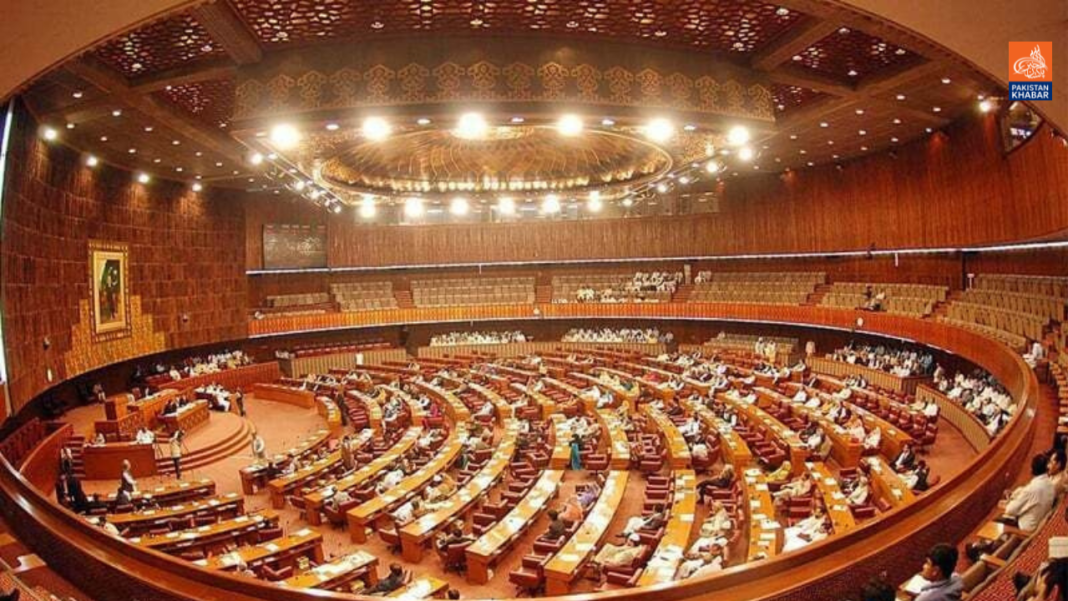An amendment to the Supreme Court Act of 1997 has been presented in the National Assembly, proposing an increase in the number of Supreme Court judges from 17 to 23. The bill, introduced by government MP Daniyal Chaudhry, aims to address the case backlog by adding more judges.
According to the bill, the expansion will help ensure timely hearings and decisions, and emphasizes the need for experts in fields like cybercrime, environmental law, and international trade to make well-informed rulings. The amendment also seeks to alleviate pressure on individual judges by distributing the workload more evenly.
While the government raised no objections, opposition leader Mahmood Khan Achakzai expressed concerns about the bill and questioned the assembly’s quorum. However, a member count confirmed the quorum was met. The Information Minister supported forwarding the bill to a relevant committee for further review, and it has now been referred for consideration.
Earlier this month, a similar bill was introduced in the Senate by Senator Abdul Qadir, aiming to raise the number of judges in the Supreme Court from 17 to 23. Senator Qadir argued that the growing backlog of cases, particularly in tax-related matters, necessitates an increase in judges to prevent delays that are harming the country’s finances.
However, the bill has stirred controversy. Opposition members suggested the move could be a strategic effort by the PML-N government to influence the judiciary’s balance of power. PTI Senator Ali Zafar criticized the bill as an attempt to manipulate the courts, while Senator Saifullah Abro accused the government of ulterior motives linked to recent Supreme Court rulings.
The bill’s timing is also noteworthy, as Chief Justice of Pakistan (CJP) Qazi Faez Isa is set to retire on October 25. Speculation exists that the PML-N government may wish to extend his tenure to maintain the current judicial system. However, CJP Isa has stated he is not seeking a personal extension, though he could remain if parliament decides to raise the retirement age for all senior judges by three years.
Political and legal experts have raised doubts about the bill, with critics like senior lawyer Chaudhry Aitzaz Ahsan and JUI-F’s Kamran Murtaza suggesting the increase in judges may be a political move rather than a genuine effort to fix the judiciary’s backlog issues. They argue the judiciary’s main problems are systemic inefficiencies and high case volume, not the number of judges.




